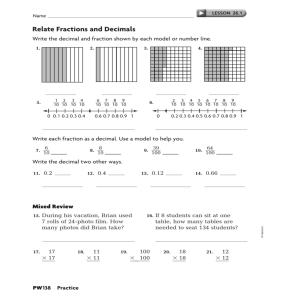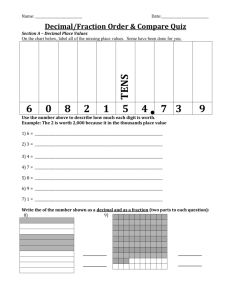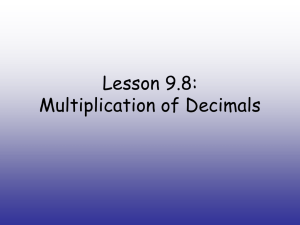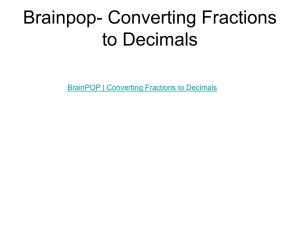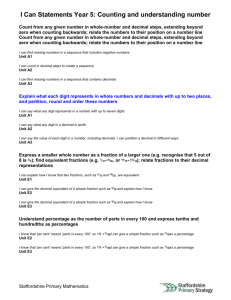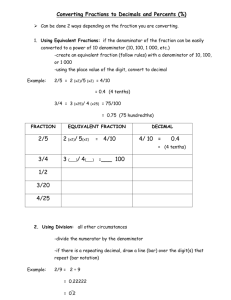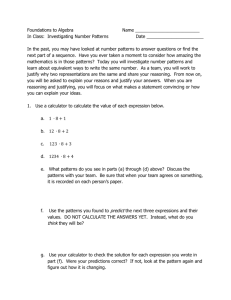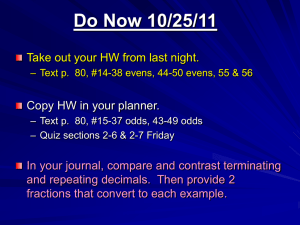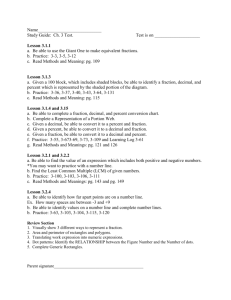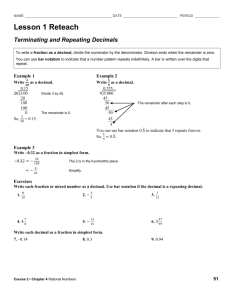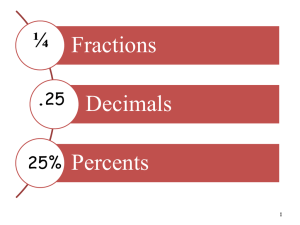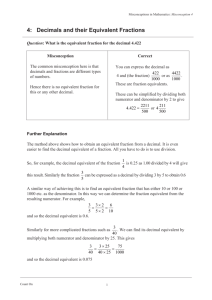Decimal Concepts
advertisement
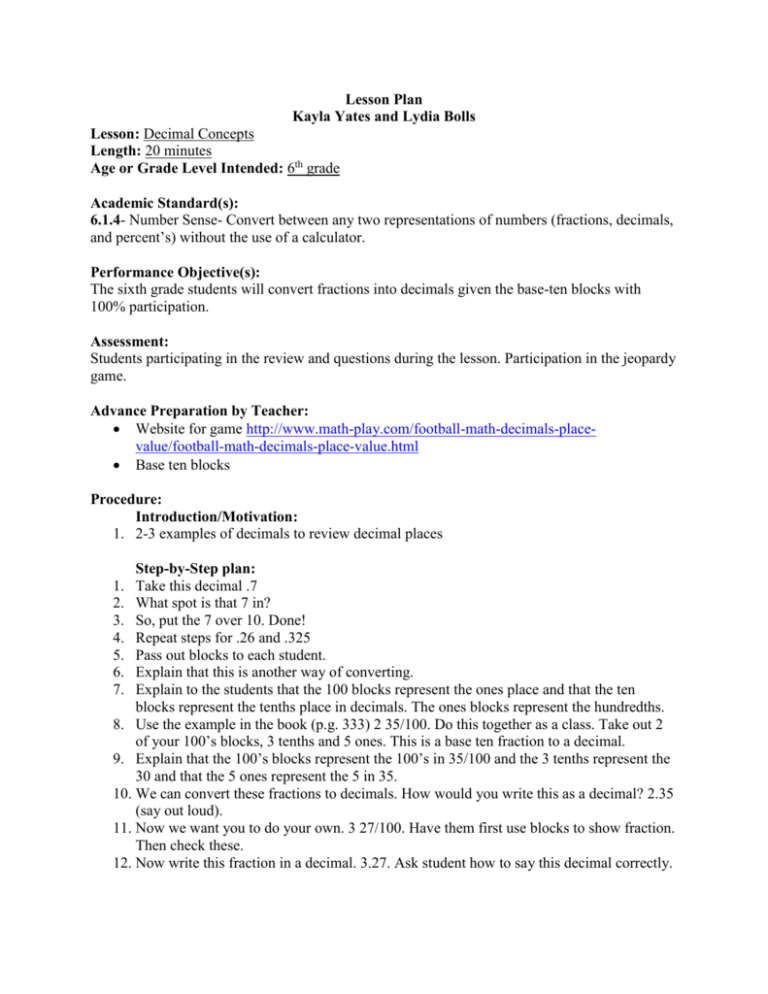
Lesson Plan Kayla Yates and Lydia Bolls Lesson: Decimal Concepts Length: 20 minutes Age or Grade Level Intended: 6th grade Academic Standard(s): 6.1.4- Number Sense- Convert between any two representations of numbers (fractions, decimals, and percent’s) without the use of a calculator. Performance Objective(s): The sixth grade students will convert fractions into decimals given the base-ten blocks with 100% participation. Assessment: Students participating in the review and questions during the lesson. Participation in the jeopardy game. Advance Preparation by Teacher: Website for game http://www.math-play.com/football-math-decimals-placevalue/football-math-decimals-place-value.html Base ten blocks Procedure: Introduction/Motivation: 1. 2-3 examples of decimals to review decimal places Step-by-Step plan: Take this decimal .7 What spot is that 7 in? So, put the 7 over 10. Done! Repeat steps for .26 and .325 Pass out blocks to each student. Explain that this is another way of converting. Explain to the students that the 100 blocks represent the ones place and that the ten blocks represent the tenths place in decimals. The ones blocks represent the hundredths. 8. Use the example in the book (p.g. 333) 2 35/100. Do this together as a class. Take out 2 of your 100’s blocks, 3 tenths and 5 ones. This is a base ten fraction to a decimal. 9. Explain that the 100’s blocks represent the 100’s in 35/100 and the 3 tenths represent the 30 and that the 5 ones represent the 5 in 35. 10. We can convert these fractions to decimals. How would you write this as a decimal? 2.35 (say out loud). 11. Now we want you to do your own. 3 27/100. Have them first use blocks to show fraction. Then check these. 12. Now write this fraction in a decimal. 3.27. Ask student how to say this decimal correctly. 1. 2. 3. 4. 5. 6. 7. 13. We are going to do another one that is more difficult. Your fraction is 2 1/5. Students will need to make fraction bigger by multiplying by 20 to the numerator and denominator. The new fraction will be 2 20/100. Have students show this with their blocks. Then have them write out the decimal for this fraction. 2.20. Closure: Look at this fun website we found for you! And another review. http://www.ixl.com/math/grade-6/convert-between-decimals-and-fractions-or-mixed-numbers http://www.math-play.com/Fractions-Decimals-Percents-Jeopardy/fractions-decimals-percentsjeopardy.html Assessment Exemplary Performance Activity Purpose Lesson plan includes standard/s that shows importance of the lesson being taught Objective aligns with standard Comments Pts. Standard is present Objective is aligned with standard __4__/4 Engaging Provides Examples Mathematical Application Lesson engages students Participation of students Lesson provides examples that allow further practice for students to gain a deeper understanding of the concept Includes visual aids Lesson shows where concept would be applied in the classroom Lesson shows where concept would be applied outside of the classroom Lesson kept students engaged Students were given blocks to use and follow along with teacher __4__/4 Technology present Lesson included 3 examples Base ten blocks given as a resource Game used for further practice Lesson did not show where concept could be used outside of classroom __4__/4 __2__/4 Connection to other mathematical ideas Connects to other related ideas References to previous lessons Lesson did not connect to other related ideas __2__/4 Reflection We chose this rubric style because it includes space to leave comments so that the presenter understands what was done correct and incorrect. For the last two requirements, only 2 points were given for each because only 1 of the bullet points was present in the lesson. The other three requirements received full points because both bullet points were addressed in the lesson. We chose these 5 criteria because we feel that they are essential in creating a lesson plan. We have seen them in numerous rubrics that we have referenced. Since the last 2 did not receive full credit, we could make changes to the lesson plan that would receive full points. For mathematical application, we could give examples where converting fractions and decimals would be used outside of the classroom. For connections to other mathematical ideas, we could connect concept to addition, subtraction, multiplication and division. We would need to state that if you would multiply a fraction with a decimal, you would need to convert one of them.
